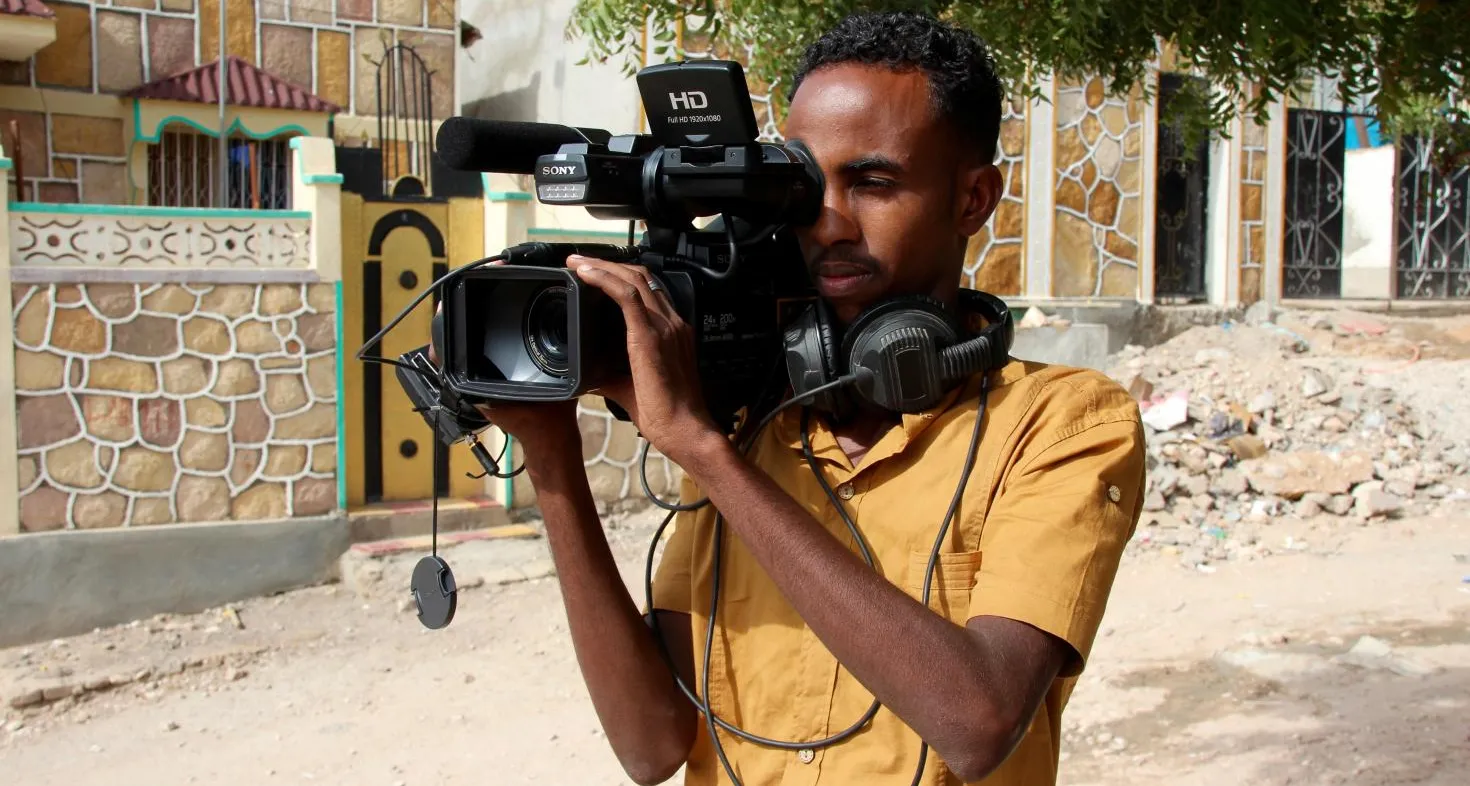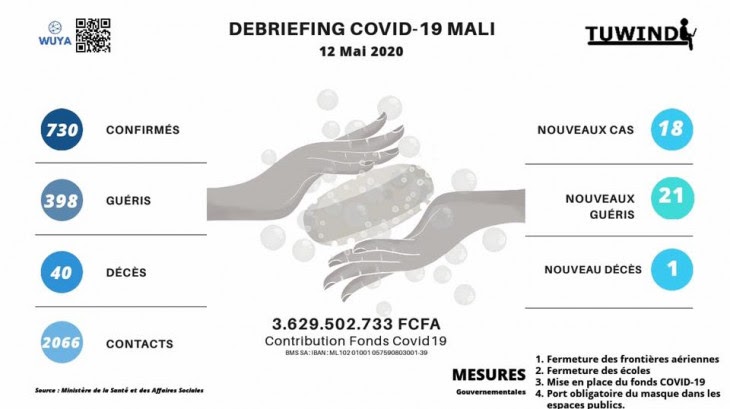
Challenging Covid-19 by debunking fake news
Due to low literacy, little trust in the government and a young population sensitive to sensational news, Mali is a fertile breeding ground for fake news. Free Press Unlimited partner Tuwindi has been addressing this issue since its foundation, but the Covid-19 crisis has accelerated efforts. This resulted in the recent launch of ‘Wuya’, an app to verify and debunk fake news, helping to bring reliable information to the people.
Mali has 704 confirmed Covid-19 cases and 38 deaths (on 11th May 2021 red.), but daily life in Mali does not look much different, even though the government has called on people to keep distance and refrain from going to crowded places. There is an atmosphere of disbelief about the threat the virus poses. “Many people still believe that the corona virus is fake news,’’ says Tidiani Togola, CEO of media development organisation Tuwindi.
Misinformation and facts mixed up
The onset of Covid-19 highlighted the importance of Tuwindi’s work on fighting fake news. “With the spread of the virus we saw misinformation and fact getting mixed up, making it increasingly complex to bring reliable news. The feeling in our whole team was that we have no more time to waste. We really believe people need to be well informed, especially now,’’ Togola continues.
So with support of Free Press Unlimited, the app called Wuya (meaning ‘lie’ in Bambara) came to life. This is an interactive platform where people can see what news is fake and what not, and can submit news themselves to have it checked. The app serves two purposes, the public receives verified information, but media organisations can also use the app as a reliable source of information. The fact checking team consists of a group of 25 journalists trained to detect fake news and have the technical skills to verify whether or not a picture or video is real.
“We use several reliable sources to check news. We work with trustworthy media partners, and we are in contact with medical specialists,’’ Togola says. “ We don’t regard the government as a reliable source. When it comes to medical information they do make an effort to provide correct information, but when politics are involved, anything they say may be unreliable.’’

Tuwindi publices daily updates on their social media on the Covid-19 statistics
Young people are key players
“You have to realise that with social networks, fake news reports from France or even the Netherlands directly affect the behaviour of people in Mali,’’ Togola explains. “Young people are key players in the spread of fake news; they will share something even if they don’t believe it.’’ Examples of topics the Wuya app has debunked so far: news claiming that black people are more resistant to the virus than white people, that face masks can cause a lack of oxygen, or that there is a traditional medicine that can cure you.
Togola: “Another reason we want to do this is because we want to raise people’s awareness. We do our best to spread the correct information so that people understand how serious this virus is. It is a potential killer and there is no treatment for it yet.’’
Another issue contributing to the spread of fake news is the huge number of people who cannot read. They have no way to verify news, and depend on what they hear and see. They get their news through WhatsApp videos, or through radio. Unfortunately, radio stations often neglect to verify news themselves, and even provide a platform for sharing these sensational fake news messages.
“In addition to the app, we also do what we can to positively influence our media partners. We remind them of the critical role they play. We tell them: sensitize your audience, try to turn every user, every reader, into a key actor who can alert others. This is how we stop the spread of fake news, and the virus,’’ says Togola.
Video: Together for reliable information
Podcast: Together for reliable information
Episode #4: Journalism during Covid-19 in Mali. As a part of the campaign ‘Together for reliable information’ we are producing a series of podcasts to highlight the inspiring initiatives from our partners all over the world to keep bringing reliable information to the public. In every podcast one of our programme coordinators will talk about the latest news from our partners on the frontline. In this podcast we speak with Jens Kiesheyer, Programme Coordinator Africa at Free Press Unlimited. He talks about how the Covid-19 crisis has hit Mali, and what challenges journalists there face while working to bring reliable information.
